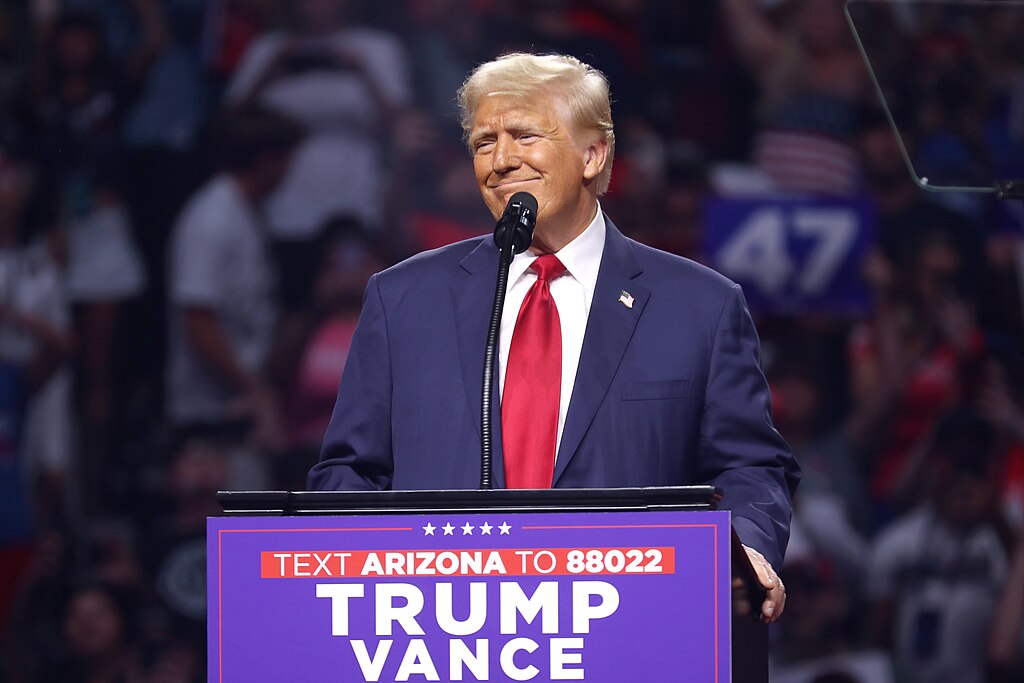As cyber threats continue to rise globally, former President Donald Trump has unveiled his ambitious cybersecurity agenda for 2025. The plan, which builds on his administration's previous initiatives, aims to fortify U.S. digital infrastructure, establish stricter cyber defense mechanisms, and address escalating cyberattacks from state and non-state actors.
Cybersecurity has taken center stage in Trump’s return to political leadership, with a renewed focus on safeguarding national interests in the digital age. His plan reportedly emphasizes strengthening public-private partnerships, enhancing national cyber defense strategies, and targeting global cybercrime operations.
National Cybersecurity Agency Expansion
One of the cornerstones of Trump’s cybersecurity plan is the expansion of the National Cybersecurity Agency (NCA), which was established during his first term. Under the 2025 agenda, the NCA would receive increased funding and resources to combat cyberattacks on critical infrastructure, including financial institutions, energy grids, and healthcare systems.
The proposal also includes the creation of a Cyber Defense Command within the U.S. military, tasked with addressing national security threats in the cyber domain. This initiative aims to counter growing cyber risks posed by countries like China, Russia, and North Korea.
Digital Sovereignty and Border Security
Trump’s cybersecurity vision places significant emphasis on digital sovereignty, proposing a controversial measure to block foreign software and technology deemed a security risk. The policy seeks to prevent cyber espionage and intellectual property theft by limiting U.S. reliance on foreign-made digital tools.
Additionally, the plan outlines stricter regulations for foreign tech firms operating in the United States, potentially requiring increased transparency and compliance with American cybersecurity standards.
Controversy Over Privacy Concerns
While supporters laud the plan as a proactive approach to national security, critics have raised concerns about its potential impact on personal privacy. Cyber policy experts warn that increased government surveillance could infringe upon civil liberties, sparking debates about the balance between security and privacy.
Civil rights organizations have expressed alarm over the possibility of mass data collection under the guise of cybersecurity, urging lawmakers to implement oversight measures to protect citizens' rights.
Social Media Reactions
The announcement of Trump’s cybersecurity plan ignited a flurry of reactions on social media, with opinions divided along political lines:
- @CyberAdvocate2025: “Finally, a leader who understands the importance of protecting our digital borders. We need this now!”
- @PrivacyFirst2025: “This sounds like an excuse to spy on Americans. Who’s protecting us from the government?”
- @TechInnovatorUSA: “Blocking foreign tech could hurt innovation. Let’s focus on collaboration, not isolation.”
- @DefendOurData: “Stronger cybersecurity is essential, but at what cost? We need checks and balances.”
- @CodeWarrior2025: “Cyber threats are real, and Trump’s plan is bold. Let’s hope it delivers results.”
- @GlobalPeaceNow: “Cybersecurity is important, but this could escalate international tensions. Diplomacy matters, too.”
The Path Ahead
As the U.S. grapples with evolving cyber challenges, Trump’s 2025 cybersecurity agenda signals a significant shift in digital policy. While the plan seeks to bolster national security, its potential implications for privacy, innovation, and international relations remain contentious. Only time will reveal whether this approach can effectively shield the nation from cyber threats or fuel further division.



 Federal Judge Restores Funding for Gateway Rail Tunnel Project
Federal Judge Restores Funding for Gateway Rail Tunnel Project  Nighttime Shelling Causes Serious Damage in Russia’s Belgorod Region Near Ukraine Border
Nighttime Shelling Causes Serious Damage in Russia’s Belgorod Region Near Ukraine Border  Trump Signs “America First Arms Transfer Strategy” to Prioritize U.S. Weapons Sales
Trump Signs “America First Arms Transfer Strategy” to Prioritize U.S. Weapons Sales  Trump Says “Very Good Talks” Underway on Russia-Ukraine War as Peace Efforts Continue
Trump Says “Very Good Talks” Underway on Russia-Ukraine War as Peace Efforts Continue  U.S. to Begin Paying UN Dues as Financial Crisis Spurs Push for Reforms
U.S. to Begin Paying UN Dues as Financial Crisis Spurs Push for Reforms  New York Legalizes Medical Aid in Dying for Terminally Ill Patients
New York Legalizes Medical Aid in Dying for Terminally Ill Patients  Ohio Man Indicted for Alleged Threat Against Vice President JD Vance, Faces Additional Federal Charges
Ohio Man Indicted for Alleged Threat Against Vice President JD Vance, Faces Additional Federal Charges  Trump’s Inflation Claims Clash With Voters’ Cost-of-Living Reality
Trump’s Inflation Claims Clash With Voters’ Cost-of-Living Reality  Trump Endorses Japan’s Sanae Takaichi Ahead of Crucial Election Amid Market and China Tensions
Trump Endorses Japan’s Sanae Takaichi Ahead of Crucial Election Amid Market and China Tensions  Norway Opens Corruption Probe Into Former PM and Nobel Committee Chair Thorbjoern Jagland Over Epstein Links
Norway Opens Corruption Probe Into Former PM and Nobel Committee Chair Thorbjoern Jagland Over Epstein Links  Japan Election 2026: Sanae Takaichi Poised for Landslide Win Despite Record Snowfall
Japan Election 2026: Sanae Takaichi Poised for Landslide Win Despite Record Snowfall  Trump Signs Executive Order Threatening 25% Tariffs on Countries Trading With Iran
Trump Signs Executive Order Threatening 25% Tariffs on Countries Trading With Iran  TrumpRx Website Launches to Offer Discounted Prescription Drugs for Cash-Paying Americans
TrumpRx Website Launches to Offer Discounted Prescription Drugs for Cash-Paying Americans  U.S. Announces Additional $6 Million in Humanitarian Aid to Cuba Amid Oil Sanctions and Fuel Shortages
U.S. Announces Additional $6 Million in Humanitarian Aid to Cuba Amid Oil Sanctions and Fuel Shortages  China Warns US Arms Sales to Taiwan Could Disrupt Trump’s Planned Visit
China Warns US Arms Sales to Taiwan Could Disrupt Trump’s Planned Visit  Missouri Judge Dismisses Lawsuit Challenging Starbucks’ Diversity and Inclusion Policies
Missouri Judge Dismisses Lawsuit Challenging Starbucks’ Diversity and Inclusion Policies 
































